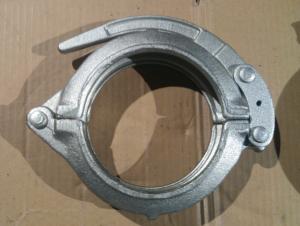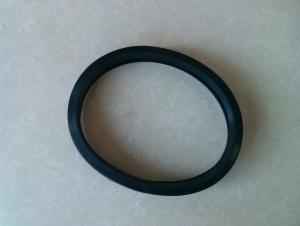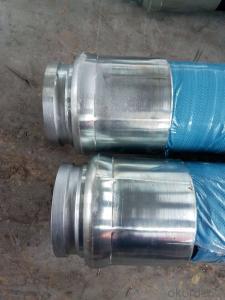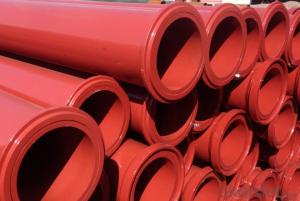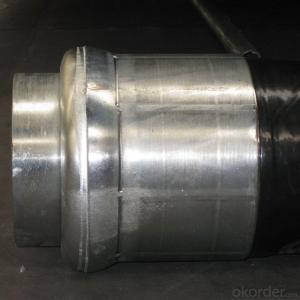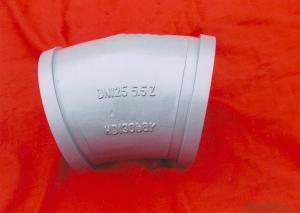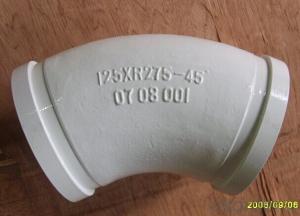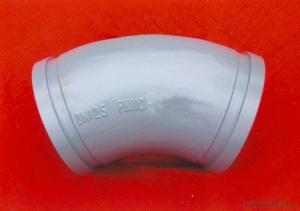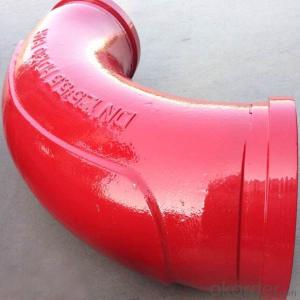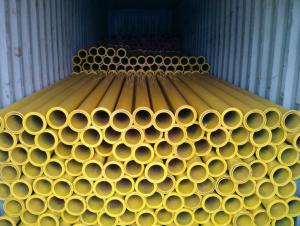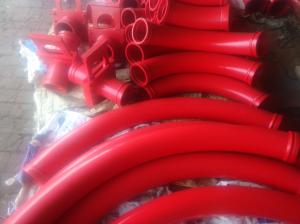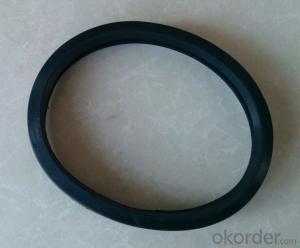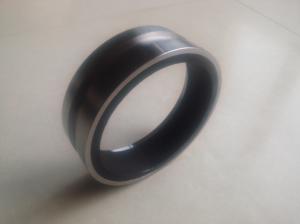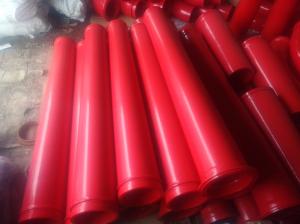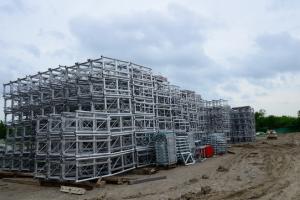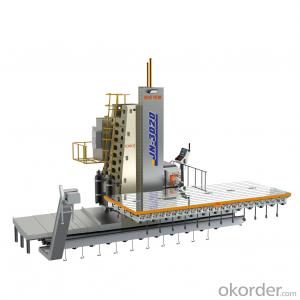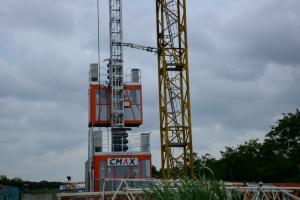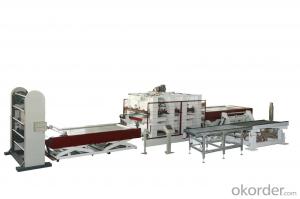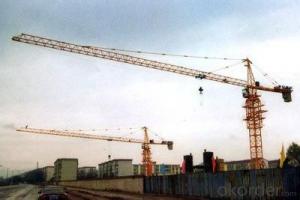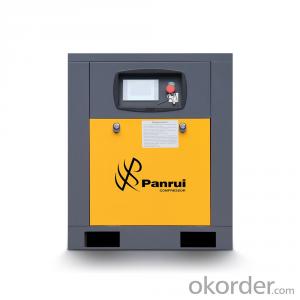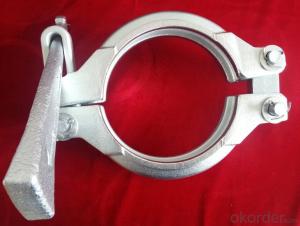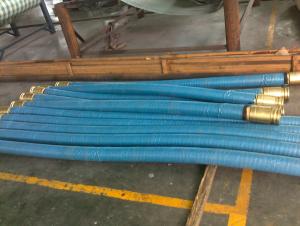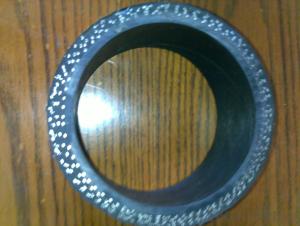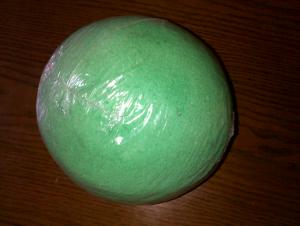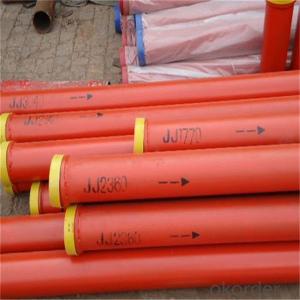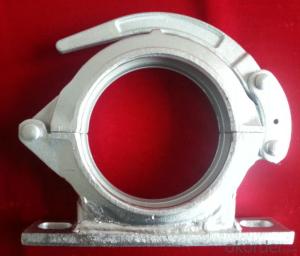High Quality Forged Snap Coupling DN125
- Loading Port:
- Tianjin
- Payment Terms:
- TT or LC
- Min Order Qty:
- 5 pc
- Supply Capability:
- 10000 pc/month
OKorder Service Pledge
OKorder Financial Service
You Might Also Like
Product Description:
Name:High Quality Forged Snap Coupling DN125
Type: Snap coupling, Bolt coupling, Wedge Coupling, adjustable or mounting type
Dimensions: DN125, 5"
Process: Casting or Forging.
Surface treatment: Painted or Galvanized.
Notes: total series of concrete pump clamp for different brand concrete pump(PUTZMEISTER, SCHWING, CIFA, SANY, ZOOMLION, IHI, KYOKUTO Etc) available from us, such as Snap coupling, Bolt coupling, Wedge Coupling, adjustable or mounting type .
Scope of Application of the Equipment
Forged Snap Coupling DN125 widely used on concrete pump truck, concrete placing boom, trailer concrete pump etc, for concrete delivery pipe connection.
Our concrete pump clamps have been successfully exported to many countries from 1998, Our main markets as below: Middle East, Southeast Asia, America, Brazil, Italy, Russia, South Africa etc
Aiming at the largest concrete pump parts manufacturer, and reliable, professional supplier in China, we can supply concrete pump elbows, delivery pipes, casting or forging couplings, end rubber hoses, rubber pistons, tungsten wear plates, delivery cylinders, and other hydraulic parts, one stop service for your concrete pump parts and accessory business.
Product Advantages:
Forged Snap Coupling DN125 are durable, strong, and resists corrosion.
Main Product Features:
· Premium quality
· Prompt delivery & seaworthy packing (10-20 days after receiving deposit)
Reliable performance
Easy and smooth operation
High safety.
· Professional Service
· Competitive pricing
Product Specifications:
Every 300pcs put in one seaworthy wooden box, and 20 boxes in one 20feet container.
FAQ:
Q1: Why buy Materials & Equipment from us?
A1: All products are through its ISO certifications, adhere to the highest standards and a commitment to supply chain safety and customer satisfaction.
Q2: How do we guarantee the quality of our products?
A2: We have established an advanced quality management system which conducts strict quality tests at every step, from raw materials to the final product. At the same time, we provide extensive follow-up service assurances as required.
Q3: How soon can we receive the product after purchase?
A3: Within three days of placing an order, we will begin production. The specific shipping date is dependent upon international and government factors, but is typically 10 to 30 workdays.
Q4: If we can produce some Forged Snap Coupling DN125 according to customers request?
A4: Yes, we can produce Forged Snap Coupling DN125 according to the difference country situations and different concrete pump to make it suitable to the market and customers. We have very professional technical team to make the design.
Q5: How to make a quick resolution for after service?
A5:We have overseas branches all-around of world, IF needed, the seller shall dispatch 2 engineers to the buyer's site for supervision of training. The buyer shall make available of necessary facilities &skilled personnel at site for training.
Images:
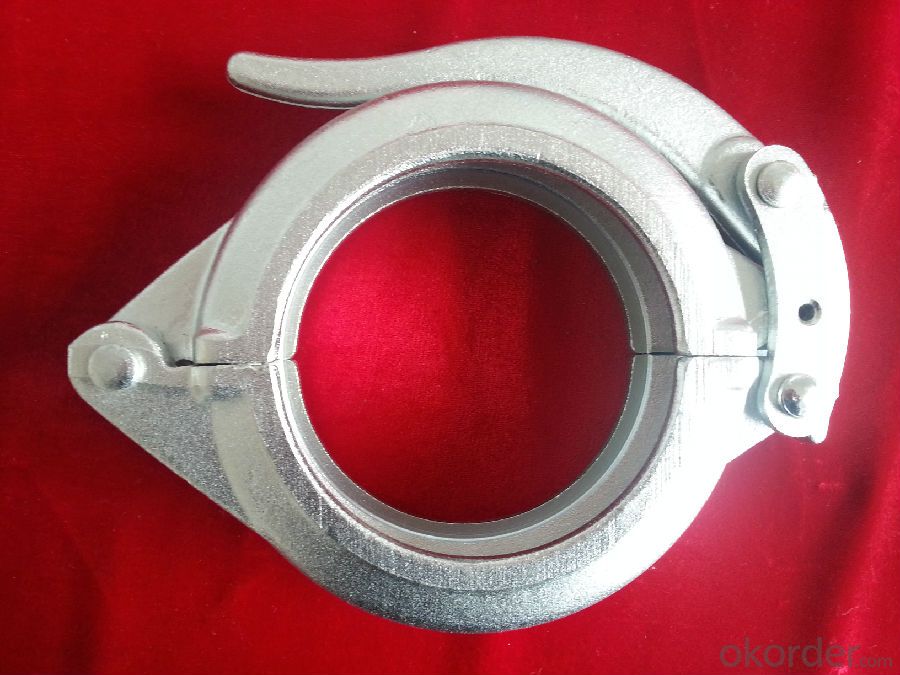
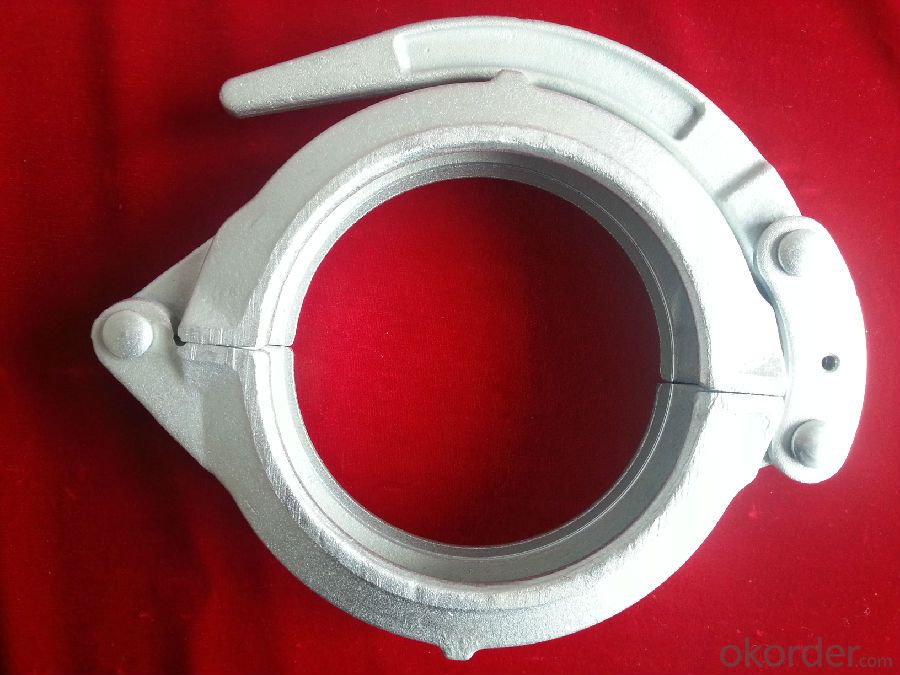
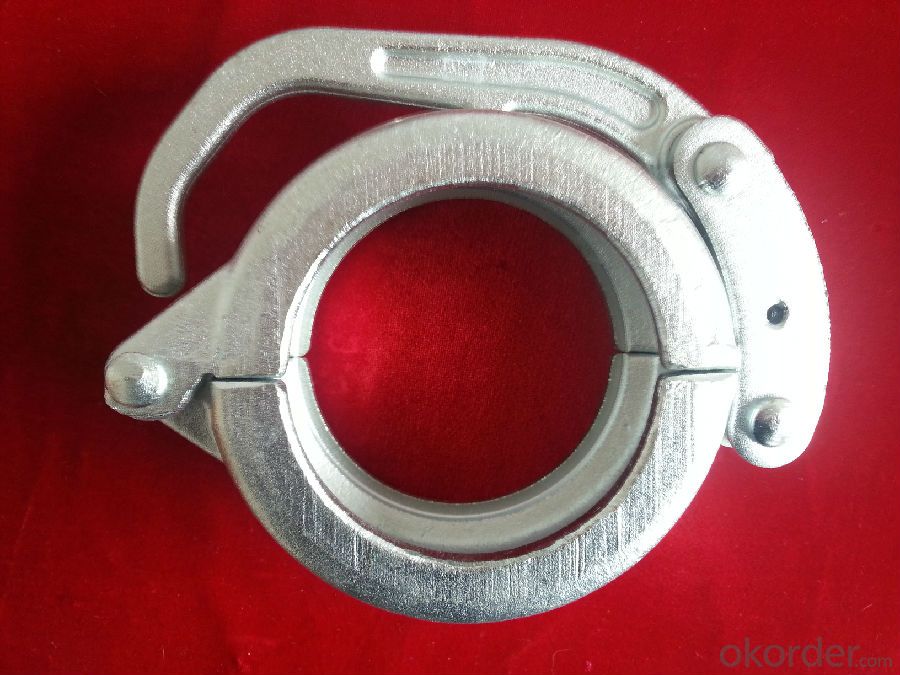
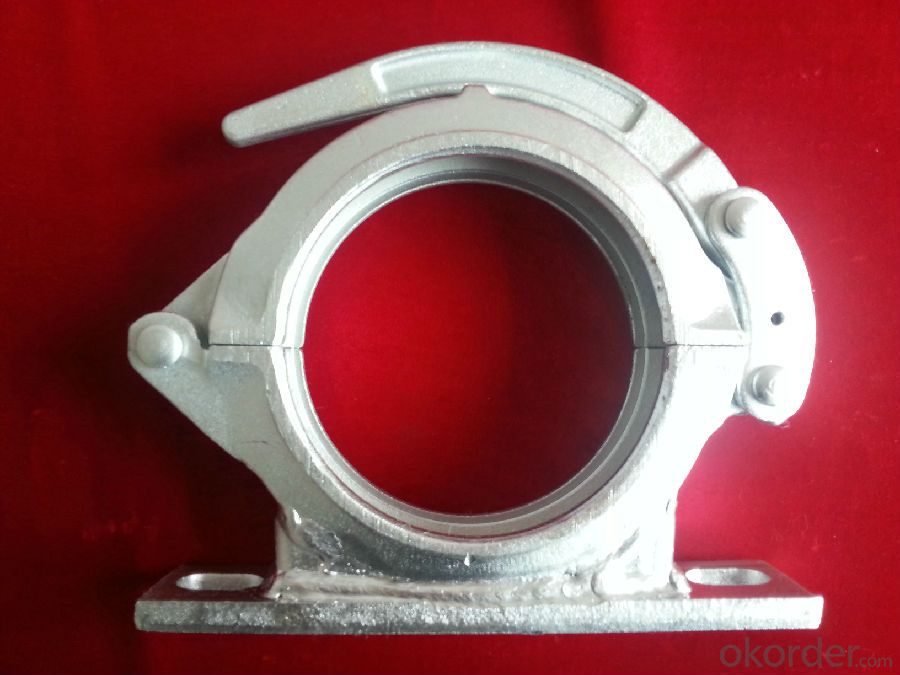
- Q:What are the different types of concrete pump hopper agitator motors?
- There are generally two types of concrete pump hopper agitator motors: electric motors and hydraulic motors. Electric motors are powered by electricity and are commonly used in smaller and portable concrete pumps. Hydraulic motors, on the other hand, are driven by hydraulic power generated by the concrete pump itself and are typically used in larger and stationary concrete pumps.
- Q:Can I repair concrete pump spare parts instead of replacing them?
- In certain instances, it is indeed possible to repair concrete pump spare parts instead of opting for replacement. There are various components of concrete pump spare parts, including seals, gaskets, valves, and hydraulic elements, that can be effectively repaired. However, the feasibility of repair is contingent upon the severity of the damage and the particular part in need of attention. In situations where the damaged parts are excessively worn or damaged, an effective repair may not be feasible, thus necessitating replacement. To ascertain whether repair is a practical option for your specific concrete pump spare parts, it is imperative to seek advice from a professional or reach out to the manufacturer.
- Q:How often should I replace concrete pump spare parts?
- The frequency at which you should replace concrete pump spare parts depends on various factors such as the quality of the parts, the intensity of usage, and regular maintenance. Generally, it is recommended to conduct regular inspections and maintenance to identify any signs of wear or damage in the spare parts. As a preventive measure, it is advisable to replace parts that show significant wear or are no longer functioning optimally. However, it is crucial to follow the manufacturer's guidelines and recommendations for the specific concrete pump model you are using. Additionally, consulting with experienced professionals or technicians in the field can provide valuable insights on the expected lifespan of different spare parts and when replacements may be necessary.
- Q:Can I get spare parts for concrete pump accessories like remote control systems?
- Certainly, spare parts for concrete pump accessories like remote control systems can be obtained. A variety of spare parts for these products are offered by numerous manufacturers and suppliers of concrete pump accessories. These spare parts encompass various components for remote control systems, including buttons, switches, sensors, batteries, and transmitters. To ensure the availability of spare parts for your particular model of remote control system, it is advisable to directly contact the manufacturer or supplier. They will be equipped to furnish you with the essential information and aid you in procuring the necessary spare parts.
- Q:How does a hydraulic oil cooler maintain optimal temperature in a concrete pump?
- In order to maintain the ideal temperature in a concrete pump and prevent potential issues, it is crucial to have a hydraulic oil cooler. The hydraulic system of a concrete pump is constantly exposed to high pressure and heavy loads, causing the oil within the system to heat up quickly. If the oil temperature exceeds the recommended range, it can lead to decreased efficiency, increased wear and tear, and even system failure. To avoid these problems, a hydraulic oil cooler is installed in the concrete pump. This cooler utilizes a heat exchanger to transfer the excess heat from the hydraulic oil to the surrounding air or another cooling medium, such as water or a refrigerant. This process effectively lowers the temperature of the hydraulic oil, keeping it within the optimal range for operation. The hydraulic oil cooler typically consists of fins or tubes that allow the hot oil to flow through. These fins or tubes increase the surface area of contact between the oil and the cooling medium, enabling efficient heat transfer. In some cases, a fan or pump may be used to enhance the airflow or flow of the cooling medium, further improving the cooling process. By maintaining the hydraulic oil at the ideal temperature, the hydraulic oil cooler ensures that the concrete pump operates at its highest level of performance. This not only increases the overall efficiency and productivity of the pump but also extends the lifespan of critical components. Additionally, by preventing overheating, the hydraulic oil cooler helps to minimize the risk of unexpected downtime and costly repairs. In conclusion, a hydraulic oil cooler is an essential component in a concrete pump as it effectively dissipates excessive heat from the hydraulic oil, ensuring optimal temperature and contributing to the overall productivity and reliability of the pump.
- Q:What are the signs of a malfunctioning concrete pump control valve?
- There are various indications that a concrete pump control valve is malfunctioning. Some of the most frequently observed signs are as follows: 1. Concrete flow inconsistency or unevenness: A malfunctioning control valve can cause concrete to flow in an irregular manner, resulting in uneven distribution or even complete cessation of flow. 2. Fluctuating pressure: When the control valve is not functioning properly, it can cause pressure fluctuations in the concrete pump. This can lead to inconsistent output and potential damage to the pump or other components. 3. Heightened noise levels: An improperly functioning control valve can generate unusual or excessive noise during operation. This may indicate internal issues or improper valve functioning. 4. Leakage or dripping: The presence of leaks or drips around the valve or its connections is another indication of a malfunctioning control valve. This can suggest seal failure or other problems that require attention. 5. Difficulties in pump control: When the control valve is not operating correctly, it can become challenging to control the pump's operations. This can include problems with starting or stopping the pump, as well as controlling the speed and direction of concrete flow. 6. Increased energy consumption: A malfunctioning control valve may result in heightened energy consumption as the pump compensates for the valve's inefficiencies. This can lead to higher operating costs and reduced overall efficiency. If any of these signs are observed, it is crucial to address the issue promptly. Malfunctioning control valves can lead to costly repairs, downtime, and potential safety hazards. It is advisable to consult a professional technician or service provider who can diagnose and resolve the problem.
- Q:How often should concrete pump remote control antennas be inspected and replaced?
- To ensure optimal functionality, it is necessary to regularly inspect the antennas of the concrete pump remote control. The frequency of these inspections will vary depending on the usage and working conditions of the pump. In general, it is advisable to conduct inspections at least once a year or after every 500 hours of usage, whichever occurs first. However, if the pump is subjected to harsh environments or experiences frequent wear and tear, more frequent inspections may be required. It is crucial to carefully examine the antennas for any indications of damage, such as cracks, corrosion, or loose connections. If any damage is detected, immediate replacement of the antenna is essential to prevent disruptions in the remote control signal. By conducting regular inspections and promptly replacing antennas when necessary, the concrete pump can operate smoothly and efficiently.
- Q:How can a damaged concrete pump hopper affect the pumping process?
- The pumping process can be negatively impacted by a damaged concrete pump hopper in several ways. To begin with, efficiency and productivity can decrease when the hopper is damaged. The hopper's role is to hold and feed the concrete mixture into the pump. Any damage to the hopper can disrupt the continuous flow of concrete, leading to frequent interruptions in the pumping process. This causes delays and reduces the overall output of the pump. Furthermore, the quality of the concrete being pumped can be affected by a damaged hopper. The hopper is designed to ensure proper mixing and consistency of the concrete mixture before it is pumped. If the hopper is damaged, it may not effectively mix the concrete, resulting in inconsistencies in the mixture. This can lead to poor-quality concrete being pumped, compromising the structural integrity and durability of the final product. Additionally, a damaged hopper can pose safety risks for the workers involved in the pumping process. Sharp edges or loose parts on a damaged hopper can cause injury if not addressed properly. Moreover, if the hopper is not functioning correctly, it may cause clogs or blockages in the pump, leading to pressure build-up and potential accidents. Finally, maintenance and repair costs can increase due to a damaged hopper. An imperfect hopper may require frequent repairs or even replacement, which can be time-consuming and expensive. Regular maintenance and inspection of the hopper are crucial to identify any damages early on and prevent them from escalating into more significant issues. In conclusion, a damaged concrete pump hopper has significant implications for the pumping process, including reduced efficiency, compromised concrete quality, safety risks, and increased maintenance costs. Regular inspection, maintenance, and timely repairs are essential to ensure the smooth operation of the pump and the delivery of high-quality concrete.
- Q:How often should hopper cylinder seals be replaced in a concrete pump?
- Hopper cylinder seals in a concrete pump should be replaced as soon as signs of wear or damage are observed. Regular inspection and maintenance can help identify the need for replacement, but the frequency ultimately depends on factors like usage, environmental conditions, and the quality of the seals. It is recommended to follow the manufacturer's guidelines and consult with professionals to determine the appropriate replacement schedule for hopper cylinder seals in a concrete pump.
- Q:How to operate the concrete pump?
- Pumping equipment parking brake and lock brake should be used at the same time, the tire should be wedge tight, water supply should be normal, and the tank should be filled with clean water, the hopper should be no debris, the lubrication points should be lubricated properly
1. Manufacturer Overview |
|
|---|---|
| Location | |
| Year Established | |
| Annual Output Value | |
| Main Markets | |
| Company Certifications | |
2. Manufacturer Certificates |
|
|---|---|
| a) Certification Name | |
| Range | |
| Reference | |
| Validity Period | |
3. Manufacturer Capability |
|
|---|---|
| a)Trade Capacity | |
| Nearest Port | |
| Export Percentage | |
| No.of Employees in Trade Department | |
| Language Spoken: | |
| b)Factory Information | |
| Factory Size: | |
| No. of Production Lines | |
| Contract Manufacturing | |
| Product Price Range | |
Send your message to us
High Quality Forged Snap Coupling DN125
- Loading Port:
- Tianjin
- Payment Terms:
- TT or LC
- Min Order Qty:
- 5 pc
- Supply Capability:
- 10000 pc/month
OKorder Service Pledge
OKorder Financial Service
Similar products
New products
Hot products
Related keywords
